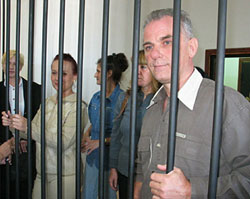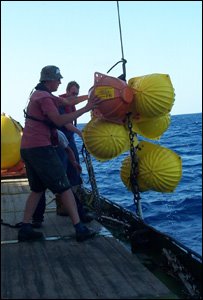 In Defence of the Huata’s
In Defence of the Huata’sIf he ends up in this unit, I’ll defiantly have to interview W. Huata. He and his wife actually live just over the wire – right next to this prison where they have an orchard. Great for visits – walking distance. He might be in a unit close enough for Donna to lob parcels of inspirational Afro-American poetry to him from their property. It’s all so tragically fortunate.
Not pleading guilty was probably the worst error. At that stage, in our system, it is a double-or-nothing game: either you’re publicly absolved and walk out free or the sentence you would have got had you pleaded guilty earlier is then doubled in automatic response to the use of resources and your unremorseful disposition. I guess they’s gamblin’ folk. And the appeal: that’s not usually double-or-nothing, it’s more akin to Russian Roulette. There’s a small chance it could actually get worse and render the process a double slap across the face – at this point usually enough for the person with the mechanical digger, gouging away at the bottom of the pit, to stop digging and start the long climb out. And good luck trying to convince the parole board it’s all tickety-boo when you’re appealing it – the ultimate failure to take responsibility.
I’m not sure what sort of financial damage was really done to the Pipi Foundation because of the Huata’s actions however. My understanding was that Donna got the funding (which caused the Foundation to come into existence) by politically strong-arming the National Coalition government over the issue of her personal vote. If true, that raises obvious conflict of interest concerns, but even if false, her later antics were clearly inappropriate given what the government funds were supposed to be used for…oe was it? If the Foundation met all the govt. requirements and had enough surplus for the trustees to distribute without the necessity of internal paperwork who’s business is it? If the Foundation doesn’t consider itself a victim of wrong doing (the offer of payment to Donna last month would seem to confirm this) then is there a problem?
Since I don’t have access to all the information I may be wrong on some of this, but as I recall the whole series of allegations stemmed from the Huata’s catching a secretary doing what they were doing – but on a much smaller scale. I suppose they thought they were entitled to it, or could at least retrospectively authorize it (the Labour party’s very familiar with that concept) whereas what the secretary was doing was “theft as a servant”, and Wi (I think it was) wanted her prosecuted. At this point she retaliated by pulling the pin on what she knew would look bad for her “bosses”. It was Wi’s attempt to unilaterally authorize expenditure by way of altering the books (secretly) that constituted a perverting of the course of justice and thus put him even deeper in schtook.
Now I’m not sure if the Trustees of the foundation complained or wasted to prosecute the Huata’s – my understanding is the Police did it anyway – but that situation raises some questions touched on in a previous post: the unwilling victim. Indeed there are solid reasons why an organization may want to avoid prosecuting; chief amongst those is damage to the credibility or public standing of the organization and secondly the disproportionate effect it may have on staff/directors etc. who may be guilty but have nevertheless contributed invaluably to create the organization. The Pipi Foundation has suffered, undoubtedly, from the prosecutions.
In all of this I am assuming the payments were unauthorized in terms of having not followed the correct procedure as well as being misrepresented in accounts – all of which is dishonesty. The question I have put is did the trustees authorize the prosecutions (as the victims)? Because their actions afterwards don’t square with aggrieved victims. And if they didn’t then why did the Police? It seems to me a case where the Huata’s paying it back and keeping the integrity of the Pipi intact would have been appropriate. Were they given that opportunity? Or did the Police act pre-emptively and thus force them into the untenable defensive position they took to try and avoid a c5riminal conviction? In that question the Huata’s might claim that racisim and “tall poppy” hating is a systemic factor in the Police decision to pursue them. They might say that less successful,
less Maori, people in a similar bid would not have been pursued – that a quiet word of “well deal with this internally, mate” would have ended any further investigation.
All I’m sure about in this sorry saga and fall from grace of a hitherto outstanding example of determined Maori success (in a Pakeha world of business and politics) was that it came undone because they would not extend the same rules to others that they had made for themselves. In that respect, and perhaps that only, does their fate seem justified.
If I ever meet him here, I will be sure to ask for his version of events – in fact I’d hear him out on anything other than the poetry.
DON’T FORGET Tim’s Book and magazine collection for the Prison Library, please send your books and magazines to:
Tim Selwyn
Librarian/Unit 7
Hawkes Bay Prison
Private Bag 1600
Napier, NZTim Selwyn (Editor of Tumeke!)
PRN 60477981
Hawkes Bay Prison
Currently appealing sedition conviction























































